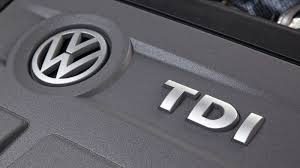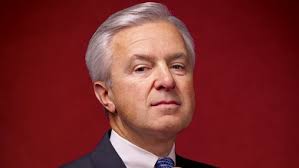Last week I wrote a post about Apple’s apparently succesful attempts to avoid paying taxes and made the point that Apple was in danger of losing its social license to operate or the tacit approval of civil society. This idea is often invoked in the mining industry and in other businesses in connection with the environmental impact their businesses have on the communities around them.

After the tragic blow out and destruction of the Deep Water Horizon drilling rig in April, 2010, BP was sharply criticized for its handling of the crisis and the attitude and remarks of its CEO at the time, Tony Hayward. In order to safeguard its ability to continue to do business in the U.S., BP replaced Hayward with Bob Dudley first as spokesman for the company and later as CEO and also ended up spending billions of dollars in fines and clean up money to the U.S. Government, the five states affected and 400 local governments.
The case of Apple shows how the idea of license to operate does not only apply to environmental sustainability.
Break The Law
When writing and speaking about a company’s approach to the natural environment I talk about a series of five legitimate strategies which range from simply complying with legislation to going far beyond compliance and building a leading position on the issue. What I do not recommend or condone is for a firm to do less than the law requires, cut corners or to put it more simply to break the law.
 In my experience, however, there are relatively few cases of large, international firms, in which the CEO or the Board has deliberately instructed people in the operating units to ignore relevant legislation and be systematically non compliant. Going back to the emissions scandal at VW that was also mentioned briefly last week, I find it hard to believe that Martin Winterkorn, VW’s former CEO, ordered the fix on VW’s 1.6 liter EA189 engine and its 2.0 liter EA288. As I wrote in a post at the time the scandal broke my guess is that he placed so much sales pressure on the VW’s North American management team that they decided to go over the line as the it was the only way they could reach their sales targets.
In my experience, however, there are relatively few cases of large, international firms, in which the CEO or the Board has deliberately instructed people in the operating units to ignore relevant legislation and be systematically non compliant. Going back to the emissions scandal at VW that was also mentioned briefly last week, I find it hard to believe that Martin Winterkorn, VW’s former CEO, ordered the fix on VW’s 1.6 liter EA189 engine and its 2.0 liter EA288. As I wrote in a post at the time the scandal broke my guess is that he placed so much sales pressure on the VW’s North American management team that they decided to go over the line as the it was the only way they could reach their sales targets.
This pattern of putting so much pressure on people that they will break the law in a systematic way is, in my view, much too common in the area of environmental protection and safety as both activities represent costs which can be saved and probably not be found out. If a company does put so much pressure on its people that they break the law, I believe the Sr. Management is fully culpable as they have placed the pressure on the people and they did not have the systems in place to assure full compliance.
Wells Fargo

According to Priyank Gandhi, a Finance Professor at the University of Notre Dame’s Mendoza College of Business, the fact that Wells Fargo employees opened millions of false accounts in order to make their sales targets is not such a big deal and that John Stumpf was only following best practice by giving employees performance bonuses. For me, Professor Gandhi misses the point entirely. The responsibility of Mr. Stumpf is not about whether the bank’s numbers were increased more or less but about 5,300 of his employees feeling that they could, should and maybe had to break the law in order to make their numbers.
The issue is to apply pressure and stretch targets for things which can be achieved and most importantly to have systems in place to make sure that no one is cutting corners or breaking the law. It is not up to me to say whether Mr. Stumpf or anyone else at Wells Fargo should go to jail. On this, however, I agree with U.S. Senator Elizabeth Warren that he should at least resign and maybe face charges. Not for what he did or did not do, but for the controls that were not put in place and the questions that were not asked.


